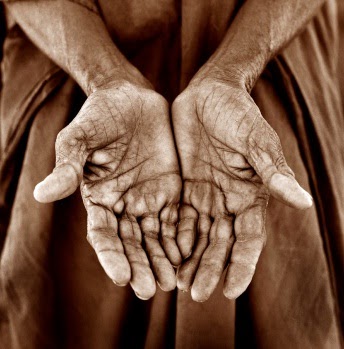In the modern world, where wealth is often measured by numbers and possessions, the Islamic principle of zakah stands out as a profound reminder that true prosperity lies in purity-of wealth, heart, and society. While many recognize zakah as an obligatory charity, its deeper purpose as a means of purification is sometimes overlooked.
The Essence of Zakah in Islamic Teachings
Zakah is not merely a financial transaction or a tax on wealth; it is a pillar of Islam and an act of worship that reflects the holistic vision of Islam. The word zakah itself comes from the Arabic root ز ك و (z-k-w), meaning to purify, to grow, and to thrive. This etymology reveals the dual nature of zakah: it purifies the wealth of the giver and fosters growth-spiritually, socially, and economically.
Allah Almighty commands in the Qur’an:
“Take, [O Muhammad], from their wealth a charity by which you purify them and cause them increase, and invoke [Allah’s blessings] upon them. Indeed, your invocations are reassurance for them.”
(Qur’an 9:103)
This verse makes it clear that zakah is both a means of purification (tazkiyah) and a source of blessing for the individual and the community.
Zakah and Tazkiyah: The Intertwined Roots of Purification
The connection between zakah and tazkiyah is deeply embedded in the Qur’an and Sunnah. Both words share the same root, indicating that zakah is a practical manifestation of the broader concept of tazkiyah-purification of the soul, intentions, and actions. Allah says:
“He has succeeded who purifies [his soul]. And he has failed who instills it [with corruption].”
(Qur’an 91:9-10)
Zakah, therefore, is not limited to wealth. It is a process that purifies the heart from greed, the mind from selfishness, and the society from inequality and neglect.
The Broader Meaning of Zakah: Purification Beyond Money
Purification of Wealth
At its core, zakah purifies wealth by removing the portion that does not rightfully belong to the individual, ensuring that what remains is wholesome and blessed. The Prophet Muhammad (peace be upon him) said:
“Whoever pays the zakah on his wealth will have its evil removed from him.”
(Sahih Bukhari)
This hadith, with its authentic chain, emphasizes that zakah is a shield against the corrupting influence of materialism.
Purification of the Self
Zakah is equally about purifying the self. By giving away a portion of one’s wealth, a Muslim detaches from greed and acknowledges that all blessings are ultimately from Allah. The Qur’an reminds us:
“You will never attain righteousness until you spend [in the way of Allah] from that which you love.”
(Qur’an 3:92)
This act of giving cultivates gratitude, humility, and empathy-qualities that are essential for spiritual growth.
Purification of Society
Zakah is a powerful tool for social purification. By redistributing wealth, it addresses poverty, reduces inequality, and fosters a sense of community and mutual responsibility. The Prophet (PBUH) said:
“The upper hand is better than the lower hand. The upper hand is the one that gives, and the lower hand is the one that receives.”
(Sahih Muslim)
This teaching encourages Muslims to be proactive contributors to society, uplifting those in need and strengthening the bonds of brotherhood.
Reader Questions Addressed
Is zakah only about giving money?
No, zakah is not limited to money. While the most common form is financial, zakah also applies to agricultural produce, livestock, and trade goods. More importantly, the spirit of zakah extends to purifying one’s intentions, actions, and relationships. It is about detaching from materialism and fostering generosity and compassion in all aspects of life.
How does zakah purify wealth and the soul?
Zakah purifies wealth by removing any “impurity” that may have crept in through questionable means or excessive attachment. It purifies the soul by breaking the hold of greed, reminding the giver that wealth is a trust from Allah and must be shared with those in need.
Who benefits from zakah, and why is it important for society?
Zakah benefits both the giver and the receiver. The recipients include the poor, the needy, those in debt, and others specified in the Qur’an. By circulating wealth, zakah alleviates hardship, promotes social justice, and builds a caring, cohesive community.
What is the difference between zakah and sadaqah?
Zakah is a mandatory act of worship with specific rules and recipients, while sadaqah is voluntary charity that can be given at any time, in any amount, and to anyone in need. Both are means of purification, but zakah is an obligation, and sadaqah is a recommended virtue.
Can zakah purify wealth acquired through haram means?
No, scholars agree that zakah cannot purify wealth obtained through forbidden (haram) means such as theft or fraud. Such wealth must be returned to its rightful owners or disposed of in a way that does not benefit the wrongdoer. Zakah purifies only lawful (halal) wealth.
Quranic and Prophetic Foundations for the Broader Concept of Zakah
The Qur’an mentions zakah over thirty times, often pairing it with prayer (salat) to emphasize its centrality in Islamic life. Allah says:
“And establish prayer and give zakah…”
(Qur’an 2:110)
The Prophet Muhammad (PBUH) also highlighted the importance of zakah as a means of purification and growth. In a well-known hadith, he said:
“Charity does not decrease wealth. Rather, it increases it, it increases it, it increases it.”
(Sahih Muslim)
This hadith, narrated with a reliable chain, assures believers that giving in the way of Allah leads to spiritual and even material increase, contrary to worldly expectations.
The Spiritual Benefits of Zakah: Cleansing the Heart
Zakah is a spiritual journey that transforms the giver. By fulfilling this obligation, a Muslim:
- Cleanses the heart from greed and attachment to material possessions
- Cultivates gratitude and humility, recognizing that all wealth is a trust from Allah
- Strengthens faith by acting in obedience to Allah’s command
- Develops empathy and compassion for the less fortunate
These spiritual benefits are not abstract ideals; they manifest in the daily lives of Muslims who give zakah with sincerity and mindfulness.
Zakah as a Social and Economic Equalizer
Beyond the individual, zakah is a cornerstone of Islamic social justice. It ensures that wealth circulates within the community, preventing the concentration of resources in the hands of a few. The Qur’an commands:
“…so that it will not be a perpetual distribution among the rich from among you.”
(Qur’an 59:7)
This principle underlies the Islamic vision of an equitable society, where the needs of the vulnerable are met and everyone has the opportunity to thrive.
Contemporary Relevance: Applying Zakah in Modern Muslim Life
In today’s world, the broader concept of zakah is more relevant than ever. As Muslims navigate the challenges of consumerism, economic disparity, and social fragmentation, zakah offers a path to personal and collective purification.
Muslims are encouraged to:
- Calculate and pay zakah diligently, ensuring that their wealth is purified and their obligations fulfilled
- Extend the spirit of zakah to all aspects of life, including time, skills, and kindness-helping others, volunteering, and supporting community initiatives
- Use zakah as a means to address contemporary issues such as poverty, education, healthcare, and disaster relief, in line with the Qur’anic categories of recipients
- Reflect on their relationship with wealth, striving to detach from materialism and cultivate contentment and generosity
By embracing the broader concept of zakah, Muslims can foster a culture of giving, empathy, and social responsibility that benefits both individuals and society at large.
Scholarly Perspectives and Areas of Discussion
Mainstream Islamic scholarship agrees on the central role of zakah as a means of purification and social welfare. However, scholars discuss the application of zakah in modern contexts, such as new forms of wealth (stocks, digital assets), and the most effective ways to distribute zakah to maximize its impact. While there may be differences in the details, the core principle of purification-of wealth, self, and society-remains undisputed.
Key Takeaways
Zakah is far more than a financial obligation; it is a comprehensive system of purification that encompasses wealth, the soul, and society. Rooted in the Qur’an and Sunnah, zakah reminds Muslims that true prosperity is found in giving, not hoarding; in selflessness, not selfishness. By fulfilling zakah, Muslims purify their wealth, cleanse their hearts, and contribute to a just and compassionate society.
As Allah says:
“Take, [O Muhammad], from their wealth a charity by which you purify them and cause them increase…”
(Qur’an 9:103)
Let us strive to embody the broader spirit of zakah in our daily lives-giving not only from our wealth but also from our time, skills, and compassion. In doing so, we purify ourselves, uplift our communities, and draw closer to Allah’s pleasure and mercy.
May Allah grant us sincerity in our giving, purity in our hearts, and success in this life and the hereafter.







